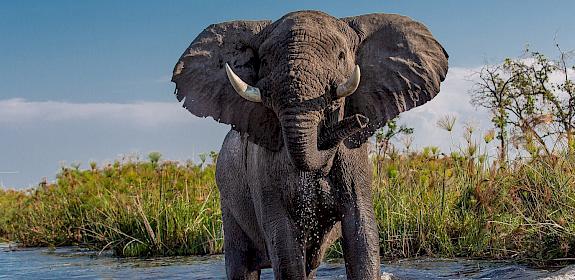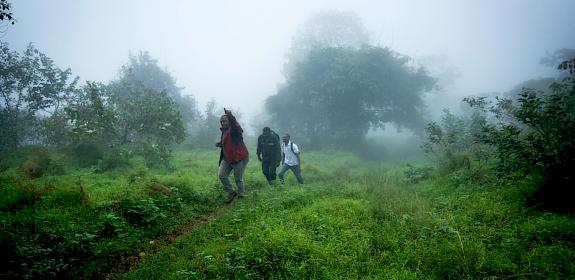Decoding solutions: curbing online wildlife crime in India
New Delhi, India, 16th September 2019—An important “Stakeholders meeting to find measures to help curb illegal wildlife trade on cyberspace in India” took place on 12th September, organised by TRAFFIC and Wildlife Crime Control Bureau (WCCB), Government of India in collaboration with the U.S. Embassy, New Delhi and WWF-India at the Ministry of Environment, Forest and Climate Change (MOEF&CC), New Delhi.
The meeting enabled creation of a common platform for wildlife law enforcement agencies, internet-based companies, policy makers and market leaders to highlight and discuss problems and solutions for curbing online wildlife crime and build and strengthen mutual co-operation and collaboration.
More than 50 senior officials from various wildlife law enforcement agencies—State forest department, Paramilitary forces (SSB, ITBP, CISF, BSF and Assam Rifles), Police—plus internet companies including Google India, Quickr, Flipkart, IndiaMART and representatives from FICCI and CII; CZA, NTCA, GTF, IFAW, IUCN and WTI attended.
Participants recommended extending current Information and Technology legislation to include wildlife crime, raising consumer awareness to influence buying choices, capacity building for law enforcement officials and creating a common forum that will bring all stakeholders on one platform to help find and implement ways to curb online illegal wildlife trade.
Illegal wildlife trade is a significant threat to wildlife conservation today and in recent years has increasingly moved into cyberspace. With India’s internet user population reaching nearly 500 million, cybercrime has become a mounting concern. Large numbers of wildlife species and their parts and derivatives have been found on sale online, among them skins and body parts of tiger, leopard and snow leopard; elephant ivory; rhino horn; pangolin scales; marine species; birds, reptiles. Their timely detection and subsequent enforcement action are fast becoming conservation priorities.
Ms Tilotama Varma, IPS, Addl Director, WCCB said, “Everything from turtles and tortoises to Red Sand Boa, monitor lizard, Red Sanders, body parts of elephants, tigers, leopards etc. are being traded on various websites and mobile applications. Therefore, it becomes imperative to involve internet companies and find solutions with them to curb online illegal wildlife trade.”
Ms Isabella Detwiler, Acting Minister Counselor for Economic, Environment, Science and Technology Affairs, U.S. Embassy, New Delhi added: “The web is the biggest marketplace for the illegal trade of wildlife. Wildlife is being trafficked from the comfort of people’s homes. We applaud the work and dedication of international, regional and local organisations who are deeply committed to ending wildlife trafficking in cyberspace and recognise the need to co-ordinate and intensify our global efforts.”
Dr Saket Badola, IFS, Head of TRAFFIC’s India office said: “This meeting has provided us with an opportunity to sensitise and interact with various internet companies, industry leaders and enforcement agencies to understand the scale and extent of problems related to wildlife crime in cyberspace. TRAFFIC aims to provide a common platform for these companies and industry leaders to enable them to find a permanent solution to the problem.”
He also shared insight into the global “Coalition to end wildlife trafficking online” which was launched in 2018, jointly facilitated by TRAFFIC, WWF, and IFAW, as a ground-breaking partnership of some of the world’s leading online and tech companies.
Mr. Ravi Singh, CEO and SG, WWF-India while applauding the effort also emphasised that “the possibilities of data mining, big data analysis and artificial intelligence should also be explored.”
Mr M. S. Negi, Addl Director General (Wildlife) termed this meeting as a well-timed effort and said: “I am really happy to see all stakeholders such as industry leaders, internet companies, wildlife law enforcement agencies and NGOs coming together to solve this crisis.”
Mr Siddhanta Das, IFS, Director General & Special Secretary, MoEF&CC as the Chief Guest of the meeting said: “India is unique as it conserves its wildlife for the sake of conservation and not in lieu of making any benefits out of it. The threat to wild species mainly in the form of illegal wildlife trade on online platforms need immediate response to curb it.
The participating internet companies have shown their interest in learning more about online illegal wildlife trade on various digital platforms and explore ways to work together to find solutions.




